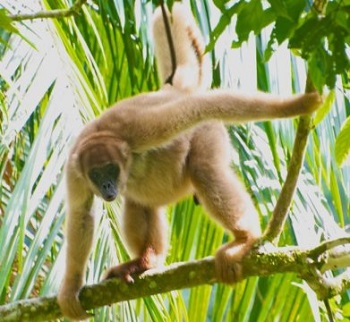The extinction of large animals from tropical forests could make climate change worse — according to researchers at the University of East Anglia.
New research published today in Science Advances reveals that a decline in fruit-eating animals such as large primates, tapirs and toucans could have a knock-on effect for tree species, according to Science Daily.
This is because large animals disperse large seeded plant species often associated with large trees and high wood density — which are more effective at capturing and storing carbon dioxide from the atmosphere than smaller trees.
Seed dispersal by large-bodied vertebrates is via the ingestion of viable seeds that pass through the digestive tract intact.
Removing large animals from the ecosystem upsets the natural balance and leads to a loss of heavy-wooded large trees, which means that less CO2 can be locked away.
The study was led by researchers from São Paulo State University in Brazil, in collaboration with UEA, the Spanish National Research Council (CSIC) and the University of Helsinki, Finland.
“We show that the decline and extinction of large animals will over time induces a decline in large hardwood trees. This in turn negatively affects the capacity of tropical forests to store carbon and therefore their potential to counter climate change.”
The research team studied data from more than 2,000 tree species in Brazil’s Atlantic Forest, and more than 800 animal species.
They found that frugivores which are not targeted by hunters — such as small birds, bats and marsupials — are only able to disperse small seeds, which are associated with small trees.
Meanwhile large heavy-wooded trees, which can capture and store greater amounts of carbon, are associated with larger seeds. And these are only dispersed by large animals.
H.Z

